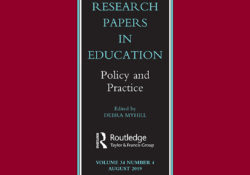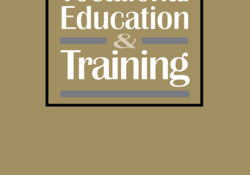tandfonline.com – What counts as success? Constructions of achievement in prestigious higher education programmes
tandfonline.com har udgivet en rapport under søgningen “Teacher Education Mathematics”: Abstract Abstract Academic achievement is regarded an indicator of the success of individuals, schools, universities and countries. ‘Success’ is typically measured using performance indicators such as test results, completion rates and other objective measures. By contrast, in this article we explore students’ subjective understandings and constructions of success, and discourses about ‘successful’ students in higher education contexts that are renowned for being demanding and pressured. We draw on data from 87 semi-structured interviews with students and staff on law, medicine and engineering physics programmes in a prestigious university in Sweden. We focus particularly upon academic expectations, effort levels, and programme structures and cultures. Achieving top grades while undertaking a range of extracurricular activities was valorised in all contexts. Top grades… Continue Reading

